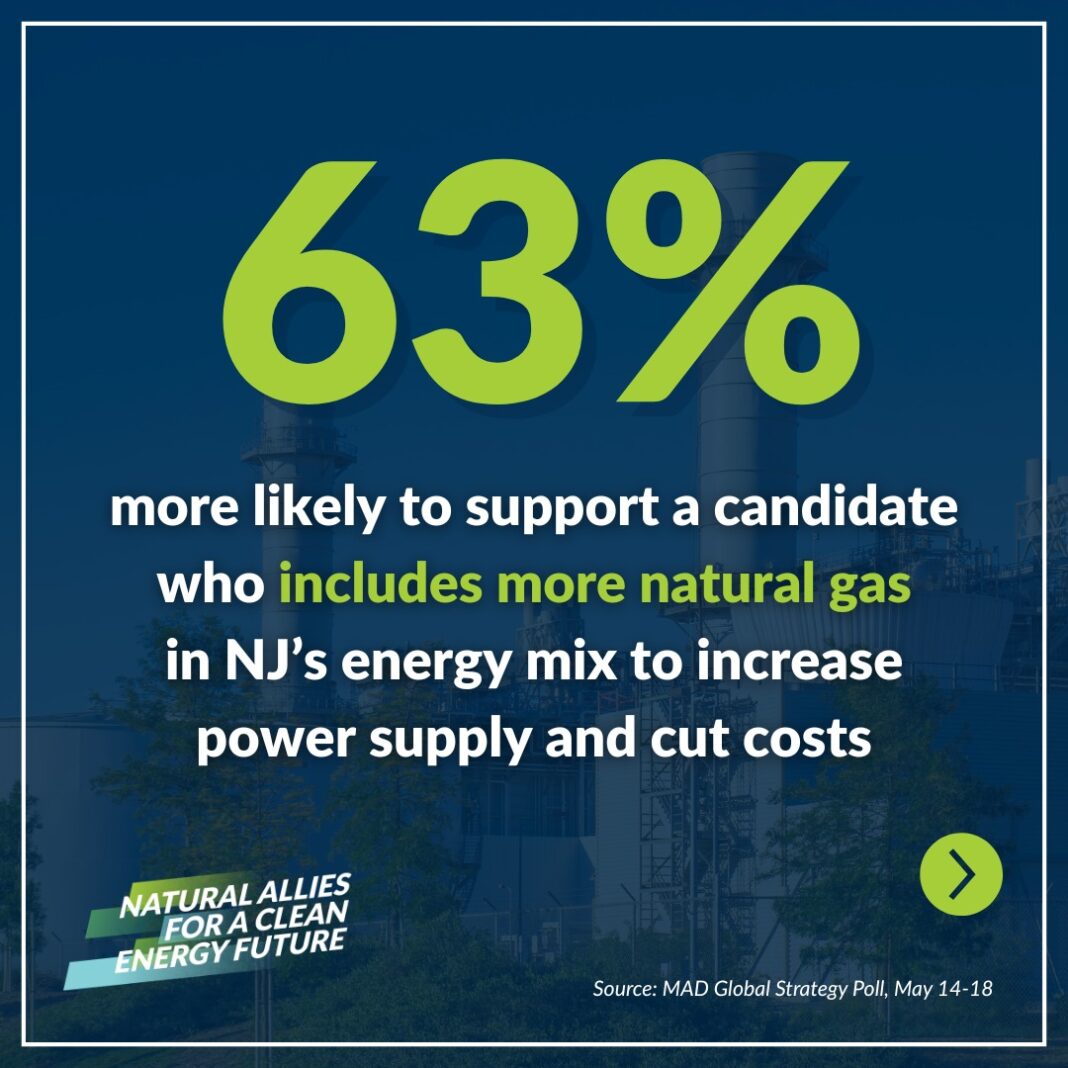With a gubernatorial election on the horizon, a new survey of New Jersey voters reveals that economic concerns and the cost of living are significantly shaping residents’ views on energy policy, often outweighing environmental considerations. The findings suggest a challenging landscape for politicians advocating for aggressive green energy transitions without clear assurances on affordability and reliability.
The memorandum, released by Natural Allies for a Clean Energy Future, is based on a survey of 500 registered New Jersey voters conducted by MAD Global Strategy from May 14-18, 2025. Part of a larger regional study, the survey highlights a strong public sentiment that ties financial well-being directly to energy usage and resource preferences.
A striking 82% of New Jerseyans expressed concern about their current economic situation, with an equally high 80% feeling their electric bills are excessive.
Economic Pressure Cooker Fuels Energy Stance
These financial anxieties directly translate into energy priorities: 84% cited affordability as their primary concern regarding energy consumption, followed by reliability at 66%. Climate change, while a concern for 40% (when combining first and second priorities), falls notably behind pocketbook issues. This indicates a clear “affordability and reliability first” mindset among New Jersey households.
“All-of-the-Above” Approach Favored for Cost Savings
Against this economic backdrop, New Jersey voters are leaning towards political candidates who champion an “all-of-the-above” energy strategy that includes natural gas to boost power supply and reduce costs. A significant 63% of respondents would support such a candidate. This stands in stark contrast to the 26% who would back a candidate continuing Governor Phil Murphy’s zero-carbon green energy policies, like offshore wind development, if it meant higher costs. Notably, this preference for diversified energy extends into the Democratic base, with only 50% of Democrats supporting the Governor’s current approach, suggesting a bipartisan appetite for pragmatic solutions.
Freedom to Choose: Resistance to Natural Gas Mandates
The survey also unearthed strong opposition to state-mandated shifts away from natural gas. A substantial 72% of New Jersey voters believe residents, businesses, and consumers should retain the freedom to choose their energy sources, rather than being compelled to move towards electric-only buildings and homes (a policy supported by only 16%). This desire for energy choice transcends political lines; even among those who approve of Governor Murphy’s job performance, 51% uphold the right to choose, with a commanding 92% of those who disapprove of the Governor agreeing.
Balanced Energy Portfolio Gains Traction
When presented with various proposals to meet the state’s electricity demands, New Jersey residents showed a strong preference for a balanced approach. The most popular proposal (66%) involved building more renewables like wind and solar, while simultaneously balancing them with natural gas as a foundational energy source to reduce carbon emissions without sacrificing reliability and affordability. Support for new zero-carbon nuclear plants also registered high at 65%, and new natural gas pipelines from Pennsylvania garnered 62% support. Conversely, revitalizing coal (36%) and halting new natural gas pipelines (19%) received considerably less backing.
Protecting Low-Income Communities a Priority
The survey also highlighted a significant concern for the financial impact of energy transitions on vulnerable populations. A strong majority (67%) of New Jerseyans believe state officials should prioritize policies that actively reduce cost burdens on low-income communities. Only 11% supported advancing a zero-carbon future if it meant higher costs for those least able to afford them, underscoring a strong demand for energy equity.
Heat Pumps Unpopular, Officials’ Performance Questioned
Among specific energy resources, solar (66% positive) and natural gas (60% positive) received the most favorable opinions. Nuclear (47% positive) and offshore wind (44% positive) were viewed more positively than negatively. However, the survey found that switching to electric heat pumps is a “nonstarter” for most, with 71% having no plans to purchase one. Furthermore, a majority of residents (62%) believe their elected officials have done a fair or poor job in managing energy prices and reliability, reflecting broader dissatisfaction with current energy governance.
“New Jersey voters across the political spectrum want to return to a balanced energy policy that prioritizes affordability and reliability while also reducing emissions, and that only happens when natural gas works with nuclear and renewables to lower emissions, stabilize costs, and keep the lights on,” said Mike DuHaime, Founder and CEO, MAD Global Strategy.
These findings present a clear mandate for gubernatorial candidates and policymakers in New Jersey: address the immediate economic anxieties of residents by prioritizing energy affordability and reliability. A diversified energy approach that integrates existing reliable sources with new clean technologies appears to be the most appealing path forward for a electorate deeply concerned with their wallets.



